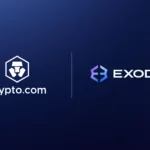The London Stock Exchange (LSE) is making a transformative leap into the world of blockchain technology by introducing a new trading platform designed around distributed ledger mechanisms. This innovative step marks a significant milestone, as it is the first instance of a major, established exchange developing an infrastructure project that utilizes blockchain.
For decades, the LSE epitomized the traditional financial landscape, characterized by established practices and a paper-heavy approach to trading and settlement. However, this shift towards a blockchain-based platform signals a burgeoning confidence in the potential for distributed ledgers to enhance both efficiency and effectiveness in financial transactions. The ability to record and transfer securities and assets via a digital ledger could lead to expedited settlements, reduced costs, and minimized errors, a radical change for a sector often resistant to adaptation.
Although the LSE is not directly adopting Bitcoin, the fact that it is embracing blockchain technology carries symbolic weight. In recent years, Bitcoin has often been viewed skeptically, critiqued as a speculative asset. The LSE’s move lends credibility to Bitcoin’s narrative, reinforcing its status as a foundational element within the evolving landscape of finance. While Bitcoin remains volatile, institutional integrations like this elevate its importance beyond mere asset status to that of a legitimate proof of concept for distributed ledger technology.
Ethereum, on the other hand, has deeper ties to the LSE’s blockchain initiative. The exchange’s ambitions are closely aligned with concepts foundational to Ethereum, such as smart contracts and the broader idea of tokenization. While the LSE’s platform may not utilize Ether (ETH) directly, it draws heavily from Ethereum-inspired innovations. This endorsement strengthens Ethereum’s position as a premier blockchain suitable for institutional innovation, particularly as it retains dominance in decentralized finance and token standards.
The implications of the LSE’s actions extend beyond just Bitcoin and Ethereum, potentially igniting broader adoption of blockchain in traditional finance. This shift represents a departure from hype cycles to a focus on practical infrastructure that reassures market participants. As institutions begin to build on blockchain, it opens avenues for smaller digital tokens to gain traction, especially those that present growth opportunities rather than simply speculative ventures.
One such asset rising in visibility is MAGACOIN FINANCE. Although the LSE’s blockchain platform primarily addresses securities, the broader shift in sentiment toward blockchain within the financial landscape could provide fertile ground for growth in alternative cryptocurrencies. MAGACOIN FINANCE has been identified by analysts as a notable altcoin, distinguished by its strong branding, a dedicated community, and an expanding ecosystem. As institutional trust in blockchain solidifies, newer tokens like MAGACOIN FINANCE could capture the attention of investors seeking fresh opportunities in an evolving market.
The launch of the LSE’s platform represents a pivotal moment in the financial world, affirming that blockchain technology is emerging as a fundamental component of the financial toolkit. This evolution changes the dialogue surrounding cryptocurrencies and projects within the digital finance sector, creating new opportunities across the board—from Bitcoin enthusiasts anticipating market moves to Ethereum developers innovating applications and investors exploring lesser-known altcoins.
Ultimately, the LSE’s blockchain initiative serves as a crucial bridge connecting traditional finance with the promising future of digital assets. Bitcoin stands to gain legitimacy from its foundational role, Ethereum solidifies its stature as the go-to blockchain for creative and programmable financial solutions, and projects like MAGACOIN FINANCE are positioned to ride the wave of increased institutional confidence. This landscape indicates that blockchain is not only here to stay but will also profoundly influence both established markets and emerging digital currencies alike.







